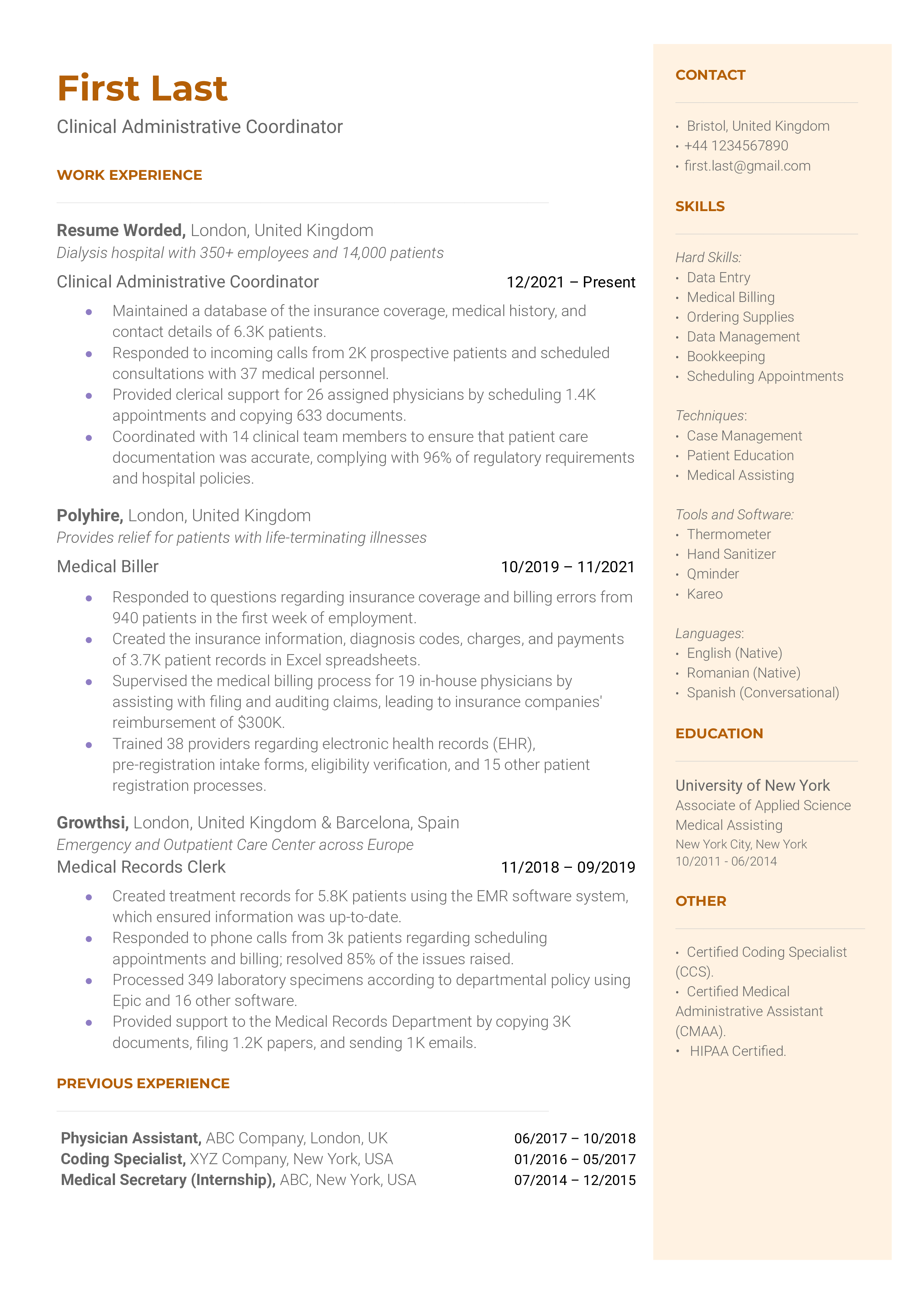Your resume is how you introduce yourself to recruiters, and details matter. If you’re a student or a recent graduate, you may be wondering if you should use your school email on your resume.
The short answer is: You could, but using a non-school email address is better for several reasons. Non-school email addresses (using @gmail.com, etc.) don’t risk be deactivated, look more mature, and will definitely make it past ATS. Use your school email on your resume if you are still in school and will have access to the email address for a while.
In this post, we’ll unpack what there is to consider when determining whether or not to use your school email address on your resume.
Use an email address that is checked often and looks professional
Sure, you can use your school email, your work email, or your personal email on your resume. When you’re deciding which email address to use, there are two main factors that are way more important.
Use an email that you check regularly
It’s important that you list an email address that you check regularly. When recruiters reach out to you to schedule an interview, you don’t want to keep them waiting too long for an answer.
Use an email that looks professional
We were all teenagers once and understand that there was a time in our lives when it was ‘cool’ to have an email address like“[email protected],” or “[email protected].”
As an adult, a cutesy email address will not serve you, so if that’s what you’re using—it’s time for a change.
Let's take a look at a simple resume to illustrate where your email would go on your resume. You can include it in a Contact section like below, or under the header next to your name:

Applicant Tracking Systems (ATS) and Resume Email Addresses
Applicant Tracking Systems (ATS) are commonly used by employers to manage job applications and to filter applicants based on certain criteria, including email domains. Some systems may be programmed to give less priority to or even filter out emails from certain domains, including school emails.
Another aspect to consider with ATS is the consistency of your contact information. If you've applied to a company before using a different email address, the ATS might have difficulty matching your new application to your existing profile. This could result in lost information or duplicate profiles.
To find out if your resume is readable by ATS, upload it to the tool below. It’ll let you know if your contact information and resume sections are correctly identified.
How to create a professional email address
When you’re looking for a job, you will likely be sending and receiving numerous emails. Many job-seekers find that having a separate professional email account keeps things organized.
Pick a domain
The domain you choose determines the word that comes after the @ symbol in your email (i.e. [email protected]). iCloud, Gmail, and Outlook have worked well for many job-seekers.
Choose your email address/username
Your best bet is to create an email address with a combination of the first and last name like: [email protected] or [email protected].
Is your name already taken? No worries! You can use a variation of your first and last name—but keep it simple. Here are some alternatives to consider:
- Add your middle initial: [email protected]
- Reverse the order: [email protected]
- Change the punctuation: [email protected]
Input the required information
Signing up for a new email account is similar to creating an account on LinkedIn, Uber, and other popular apps. For instance, here’s what the Google Account Creation Page looks like.
FAQs about school email addresses on a resume
Here are some of the most common questions we get regarding the use of a school email address on a resume:
How long after graduation will my email account stay active?
It depends on the institution. Some universities terminate student email accounts immediately after graduation. Even if you’re applying for jobs while you’re still in school, the application process may be dragged out after graduation, which could get messy if you’ve listed an email address that is no longer active.
Can providing a school email help with the job application?
There is a common belief that adding a school email address to your resume adds prestige, but it’s just not true.
That being said, your education can definitely help with your chances of landing a job. Instead of using your school email, highlight your degree in the Education section of your resume.
For more on that, check out our post on The Must-Haves When Writing Your Education On Your Resume [For 2024].
Will using my school email on my resume seem unprofessional?
Probably not. If you use your school email address on your resume, most employers won’t think twice about it. Keep in mind what we discussed above: it is way more practical and way easier to stay organized if you use a professional email.
Will using my school email on my resume attract the attention of university alumni?
Maybe, maybe not. That doesn’t mean the recruiter will favor you over other candidates. In the end, employers are focused on finding the candidate with the training, experience, and expertise that align most with their company’s needs.
Should I use my school email to apply for internships?
Here is the exception to the rule: if the internship is within the university you are going to or have recently graduated from, you should definitely use your school email address.
For professional internships at other universities, you can use your personal or school email. When recruiting for internships, hiring managers often engage with students and put listings on university job boards to find talent. In that case, your school email address may help you stand out from other candidates.
Want help with your resume? Try out our Score My Resume tool to get free, instant, detailed feedback about how to improve your resume. Good luck!










